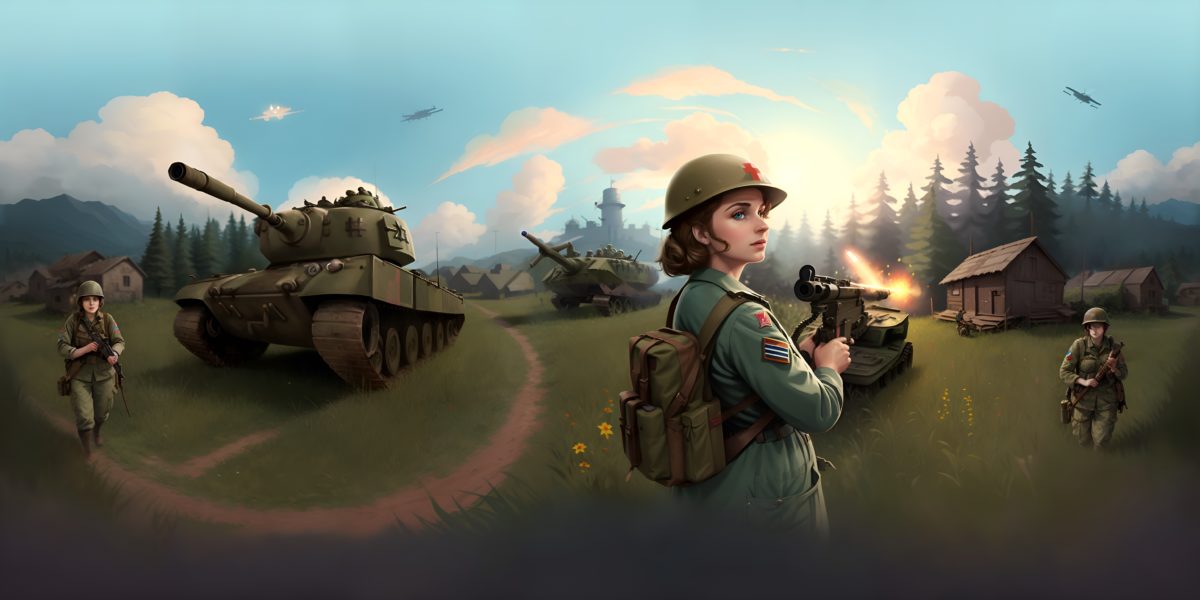World War II was a transformative period in history that saw the active involvement of women in various aspects of the war effort. While men primarily fought on the front lines, women played an indispensable role both on the home front and in military service. From working in factories to serving as nurses and even joining the armed forces, women made significant contributions that not only helped secure victory but also challenged traditional gender roles. This article examines the vital role women played during WWII, highlighting their contributions and the impact it had on society.
The Home Front: Women in the Workforce
With millions of men leaving their jobs to join the military, the labor force faced a significant shortage. To compensate for this, women were encouraged to enter the workforce in unprecedented numbers. They took up jobs in factories, munitions plants, and other industries traditionally dominated by men. This marked a significant shift as women were now actively involved in the production of weapons, ammunition, and other essential supplies needed for the war effort.
Women’s contributions to the workforce were crucial in sustaining the war effort. They displayed remarkable resilience, working long hours under challenging conditions to meet the demands of wartime production. Rosie the Riveter became the iconic symbol of women’s participation in the workforce during this period, representing the strong, capable, and determined women who worked tirelessly to support the war.
Apart from working in industries, women also played a vital role in agriculture, stepping in to fill the gaps left by men. They worked on farms, cultivating crops and raising livestock to ensure a stable food supply for the nation and the military. Their efforts not only sustained the domestic population but also supplied food to troops overseas.
Military Service: Women in Uniform
While women on the home front made significant contributions, some also chose to serve in the military. Although women’s involvement in combat roles was limited, they played vital roles as nurses, clerks, mechanics, and more. The creation of organizations like the Women’s Army Corps (WAC), the Women Accepted for Volunteer Emergency Service (WAVES), and the Women Airforce Service Pilots (WASP) provided opportunities for women to serve their country in uniform.
Nurses played a crucial role in providing medical care to wounded soldiers. They worked tirelessly in field hospitals, evacuation units, and military hospitals, often risking their own lives to save others. Without their dedication and expertise, the survival rate of injured soldiers would have been significantly lower.
Women in the WAC and WAVES performed administrative duties, operated communication systems, and worked as technicians, freeing up men for combat roles. Their contribution was vital in maintaining efficient military operations. The WASP, a civilian women’s pilot organization, flew military aircraft in non-combat roles, ferrying planes, conducting test flights, and towing targets for artillery practice. These women demonstrated their skill and bravery, proving that they were just as capable as their male counterparts.
Impact on Society: Changing Gender Roles
The involvement of women in WWII had a profound impact on gender roles and societal perceptions. Women’s contributions shattered the notion that they were limited to domestic duties and incapable of participating in critical roles traditionally reserved for men. As they assumed positions of responsibility and proved their competence, society began to acknowledge their abilities and value beyond the confines of the home.
The war provided an opportunity for women to showcase their skills, intelligence, and resilience, leading to a shift in public attitudes towards their capabilities. This newfound recognition ultimately paved the way for the women’s rights movement that followed in the post-war years.
Furthermore, the war experience empowered women to challenge social norms and demand equal treatment. They had proven themselves capable of performing tasks previously considered exclusively male domains. This led to increased opportunities for women in various fields, including science, technology, and politics, as well as the eventual breakdown of legal barriers preventing women from entering certain professions.
Conclusion
The role of women in WWII was pivotal, both on the home front and in military service. Through their contributions, women helped sustain the war effort, ensuring the availability of essential resources. They filled crucial roles in industries, stepped up in agriculture, and actively participated in military organizations, demonstrating their dedication, competence, and bravery.
Moreover, their involvement in the war effort challenged traditional gender roles and paved the way for women’s empowerment. By proving their capabilities in various fields, women gained recognition and respect, leading to increased opportunities and the eventual breakdown of societal barriers.
The contributions of women during WWII must never be forgotten. Their efforts not only played a significant part in securing victory but also laid the foundation for the progress women have made in society since then. Women in WWII were trailblazers, breaking down barriers and redefining societal expectations, ensuring a more equitable future for generations to come.

Egypt: Unraveling the Mysteries
Ancient Egypt, a civilization that flourished along the banks of the Nile River for over three millennia, continues to captivate our imagination with

Ancient Aliens: Unraveling Extraterrestrial Influence in History
Introduction The notion of extraterrestrial life has fascinated humanity for centuries. While most people associate aliens with science fiction,

Exploring the Origins, Purpose, and Symbolism of the Sphinx
The Sphinx, a colossal monument in the form of a mythical creature with the body of a lion and the head of a human, has captivated the human
